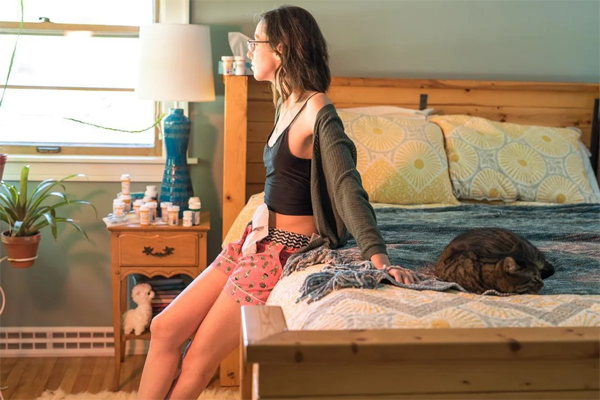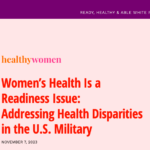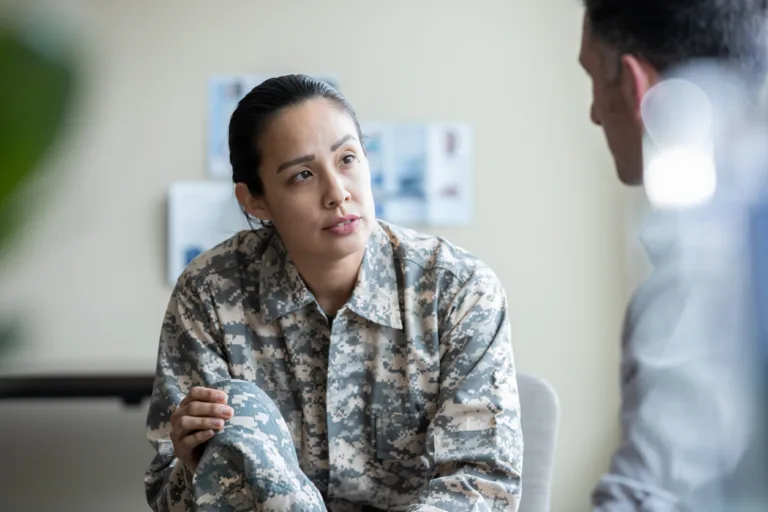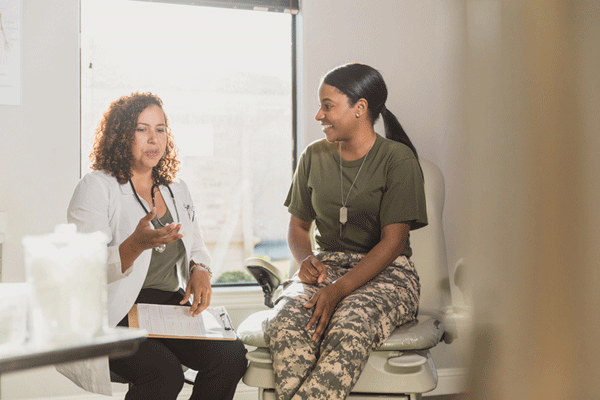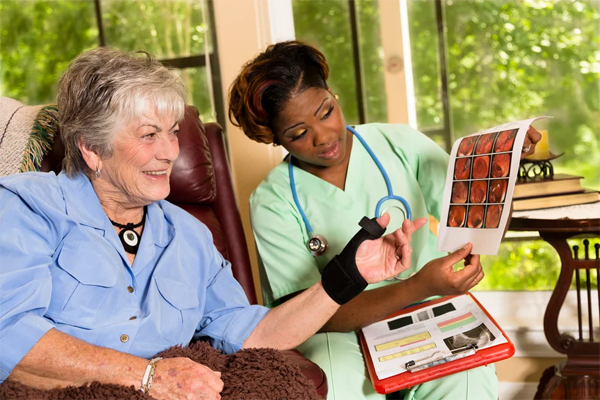As told to Erica Rimlinger
After photographing weddings for 10 years, I was preparing to put my camera down and pick up a bridal bouquet for my own wedding day. I was excited to see all my family and friends at my upcoming bridal shower, and I was really excited to marry my wonderful fiancé. Maybe that excitement was causing all the digestive issues I was experiencing?
But these weren’t just pre-wedding butterflies. My symptoms included bleeding and bloating. And more bleeding.
I visited my general practitioner, thinking I had hemorrhoids, and he referred me to a gastroenterologist. This doctor spent less than 5 minutes with me, performed a quick rectal exam, found no blood and told me I should get a colonoscopy. But with the private health insurance I had as a freelance photographer, the procedure was going to cost $3,000, and the next available appointment wasn’t for four months.
I decided to skip the procedure. I thought, Maybe this is all just caused by stress. I was young, healthy and active. Why should I be concerned? With expense and unavailability putting the test out of reach, stress was beginning to sound like the culprit after all. Plus, if none of my doctors seemed concerned, why should I be?
I thought the solution might be as simple as changing my diet, so instead of getting the colonoscopy, I cut out gluten, and then dairy. But my symptoms kept getting worse. I would photograph events and weddings feeling like I had to go to the bathroom all the time — and with urgency. I’d shoot a wedding ceremony while silently begging the officiant to talk faster, then I’d run to the bathroom as soon as I could. When I got there, I couldn’t go, but the feeling never left me.
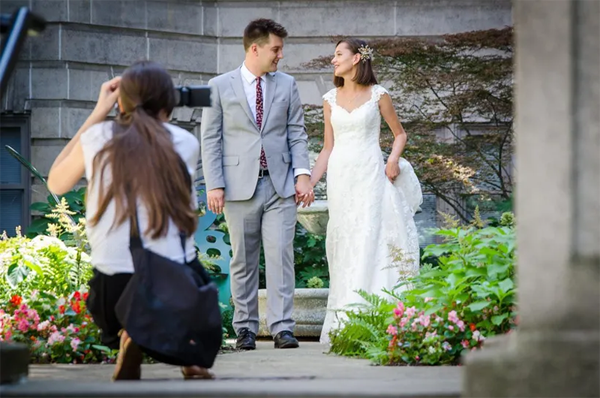
I returned to my general doctor’s office. The nurse practitioner who saw me that day told me what I was experiencing was not a sign or symptom of hemorrhoids. But when she did a rectal exam with a scope, she saw blood and sent me to the emergency room, recommending I get a colonoscopy immediately. While sitting in the ER, I read a book on how to have a healthy pregnancy in preparation for starting a family as the hospital’s social work office navigated the insurance and logistics issues, and the ER doctors openly wondered why I was there at such a young age.
Instead of falling asleep during the procedure, I remained fully awake under the “twilight” sleep medication and heard the doctors ask, “What is a 32-year-old woman doing here?” Full of anticipation, I remained fully conscious as the medical professionals navigated my colon. They were almost done when I heard someone ask, “What’s that?” “That” was the tumor, sitting right on the muscle that triggers the feeling you get when you have to have a bowel movement. Although technically we had to wait for the biopsy results, I was told to expect a cancer diagnosis. “I’ve seen it enough,” the doctor told me. “It’s definitely cancer.”
With that, my bridal shower became partly a cancer support shower. As I packed to leave the hospital, I looked at my book on healthy pregnancy, suspecting I no longer needed it. I was eventually diagnosed with locally advanced stage 3 colorectal cancer. My husband was my rock and my caretaker throughout the ordeal. As a Marine, he wasn’t squeamish about anything. He helped me through chemo, and then radiation, which shrank my tumor. He set up infusions, packed my wounds and helped me with ostomy care.
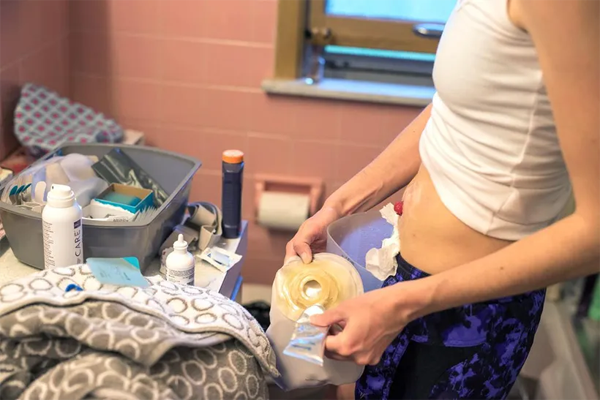
I was tested for genetic syndromes since colorectal cancer is generally rare in women my age. The test returned a positive result for Lynch Syndrome, which affects a gene that controls cancer-fighting actions in the body. I describe the affected gene as missing the body’s spell check for cancer. A family trait that can be inherited, Lynch Syndrome was probably responsible for the deaths of my father and grandfather from colorectal cancer, and for my aunt’s ovarian cancer.
Two weeks into my chemo, my husband and I had our wedding ceremony. Then, we revised our plans for a family. We had to decide whether to have my eggs frozen before my upcoming chemotherapy and radiation put me into menopause. Because I had Lynch Syndrome and a colorectal cancer diagnosis, my reproductive and pelvic organs had an extraordinarily high risk for developing cancer again. My doctors recommended I have a total hysterectomy, which removed my uterus,ovaries and cervix, and a proctocolectomy to remove my colon and rectum.
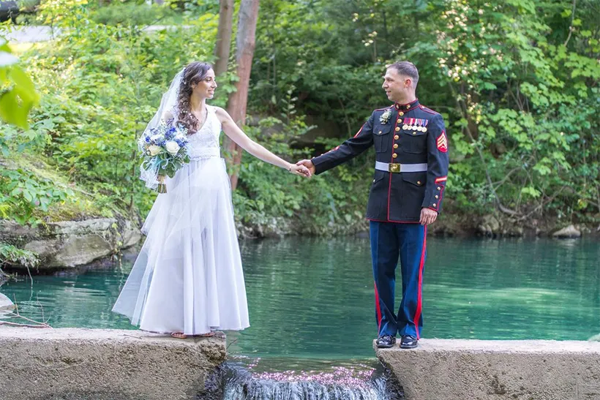
The doctors were able to give me a J-pouch, which means they took part of my intestines and trained them to work like a rectum. I joke that I’m glad I got cancer in the “trash can” part of my body, but things have been complicated. Because of residual radiation damage, my J-pouch never worked correctly. I had a lot of intestinal damage and scarring. On my last day of chemo, as I was about to ring the bell that signaled my graduation from cancer treatment, I was rushed to the ER with a volvulus, which happens when the bowel twists on itself, causing obstruction and tissue death. After that, I was given a permanent ostomy, which creates a way for you to go to the bathroom through an opening in the abdomen.
I’m still dealing with medical issues related to my colorectal cancer. My fight continues, and I’m grateful for my supportive family, who rallied around me even when they had to do so under Covid-19 restrictions.
As a photographer, I never took pictures of myself until I got cancer. Now, I take these pictures and share them to create awareness. I want women to advocate for themselves and have access to a colonoscopy, especially if they’re experiencing symptoms and are younger than the recommended screening age. I want to emphasize the importance of genetic testing and knowing your family medical history. I especially want young women, and the medical community, to know colorectal cancer isn’t a disease that only affects older people.


